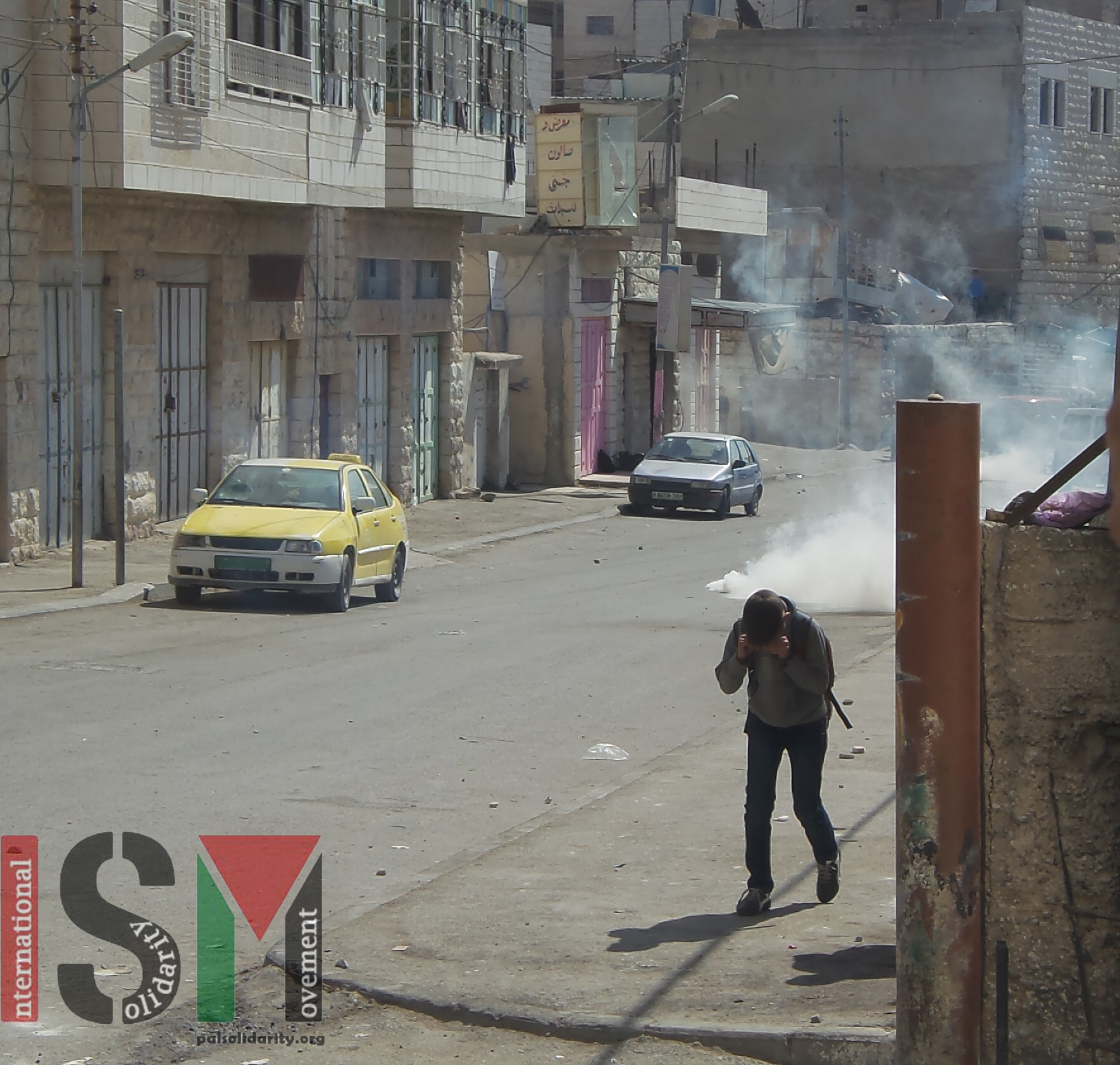Author: ISM Media
-
Mosque burnt in apparent price tag attack
15th October 2014 | International Solidarity Movement, Nablus team | Aqraba, Occupied Palestine In the early hours of Tuesday morning, a group of Zionist settlers from the illegal settlements close to Aqraba near Nablus, set fire to a mosque in the outskirts of the village. The investigation so far shows that the building was set on fire at approximately…
-
Stories from Burin during the olive harvest
15th October 2014 | International Solidarity Movement, Nablus team | Burin, Occupied Palestine On Monday, three Palestinians were picking olives in Burin. Their field was in a very exposed area, right between an illegal settlement, a military checkpoint, and a security detention centre. A group of ISM volunteers accompanied them as protective presence. These are some of their stories: Ali,…
-
Tear gas and stun grenades used against schoolchildren
13th October 2014 | International Solidarity Movement, Khalil team | Hebron, Occupied Palestine Today at the Salaymeh checkpoint in al-Khalil (Hebron), Israeli soldiers fired four long-range tear gas canisters, and threw three stun grenades, all towards children leaving school to walk home. One tear gas grenade was also thrown directly at ISM activists documenting the military violence.…



